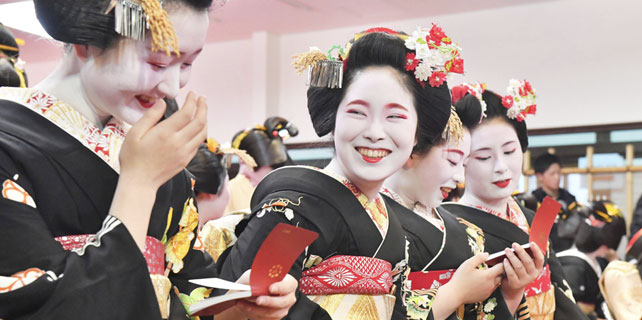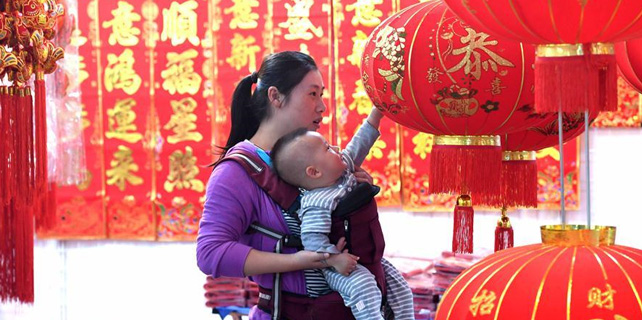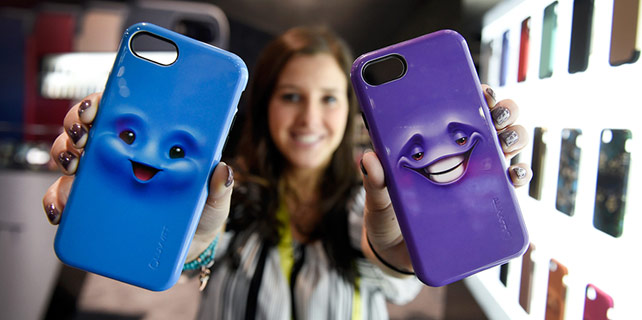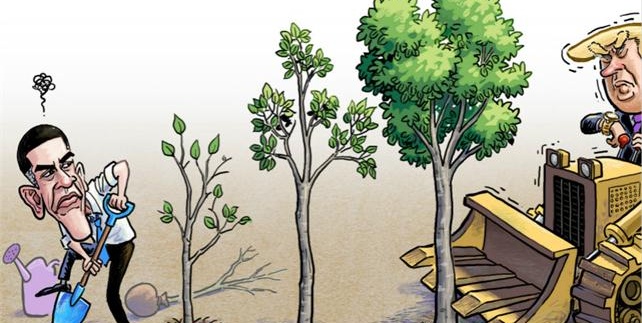China's designs move to fore at CES
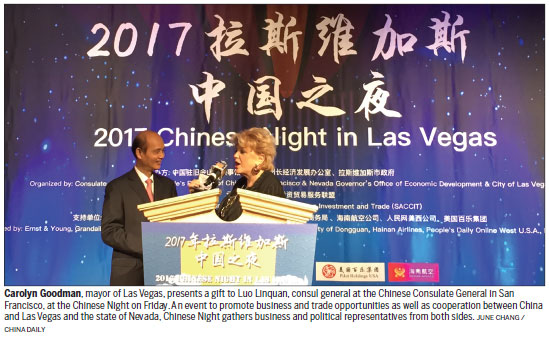
When it comes to technology, product design in China is becoming as prominent as assembly, the Consumer Electronics Show in Las Vegas revealed.
"Chinese tech is really coming to the forefront. It's not the old joke of being 'made in China', but really designed now in China, and for the world," said James Feldkamp, a US industry analyst, on the CES show floor. "We are excited to see more Chinese tech firms out there and see what they brought to the show."
Of the 3,800 companies attending this year's CES (Jan 5-8), more than 1,500 came from China, accounting for 41.8 percent of all exhibitors, according to Luo Linquan, Chinese consul general in San Francisco.
"CES is a good showcase of China-US cooperation," Luo said at the Chinese Night dinner in Las Vegas on Friday. It was the first time the Chinese consulate hosted an event at the 50-year-old trade show.
"This year is 41 percent; next year it will be 50 percent," said Las Vegas Mayor Carolyn Goodman at the dinner, welcoming more Chinese businesses to "take a chance" at the annual show held every January in Sin City.
Not only are their numbers growing, but so is the quality of their booths, according to Qian Yi, the global business development director of Alibaba's B2B Business Unit.
This year is Qian Yi's 10th CES show. He remembered that during his first few visits to CES, he saw some Chinese exhibitors with good products. "But the way they show their products was not up to the standard," he said.
Now, many Chinese companies - including Huawei, Changhong, TCL, LeEco and DJI - have built large booths at top locations in the convention center. Their press conferences are packed with media from around the world.
"We now look forward to the next 50 years in defining what that future looks like, and you see a number of Chinese companies help define that," said Shawn Dubravac, chief economics at Consumer Technology Association, at the Chinese Night.
"They are defining what the future of the network looks like from the 5G perspective, defining what the future of vehicles looks like, from self-driving vehicles, defining the future of the home, from televisions to other smart-home components," he said.
The adoption of smart home devices and services was highlighted at CES, where brands like Haier, Hisense and TCL all touted products for the smart home ecosystem.
Haier, which bought GE Appliances in early 2016 and is now undergoing a merger process with the American appliances giant, showcased its U+ system, which is the company's smart home family of products.
"Connected is a key part of our entire strategy. When you think about GE Appliances, we launched our first connected suite in the US a month ago, which would connect with the [Amazon] Alexa," said Wayne Davis, general manager of the Haier brand at GE Appliances.
"We're expanding across all our brands, and we really believe that connected is the way of the future," he said. "Consumers are really wanting all of their devices, whether it's their electronics or their appliances, to have some kind of connectivity."
Hisense and TCL both announced new smart TVs in their lineups, both emphasizing that smart connectivity is increasingly important in the age of smartphones and tablets. TCL will be releasing its X series of ultra-slim body televisions 7.9 and 6.9 mm thick, both with curved edges.
"We're a smart-manufacturing technology organization coming out with smart products," said Ranjit Gopi, head of marketing at TCL, during the product announcement. "At TCL, we're going to redefine smart TV."
Hisense announced a large-screen TV - clocking in at 100 inches diagonally - that will be available in the summer for $13,000, and stressed that its new TVs will come with web browsers and run on the Roku entertainment platform.
The company's president, Liu Hongxin, said during the product announcement that 2017 is a "critical moment" for global TV manufacturers to develop new technological innovations.
Cellphone maker Huawei also noted the need for smart devices, with Richard Yu, CEO of the company's Consumer Business Group, saying that calling phones "smart" no longer does them justice: "Today, the smart phone with [artificial intelligence capabilities] together, that's an 'intelligent phone'. Calling them 'smart phones' is not enough," he said during a keynote address on Thursday.
Xiaomi made its debut at CES with a TV announcement. The cellphone maker is launching the Mi TV 4, which the company said is capable of suggesting content to a user based on what he or she has watched in the past. The TV will only be available in China for now.
Reaction to the TV was mixed, with some being disappointed with the lack of a cellphone launch in the North American market.
"Xiaomi steps forward a big stride by presenting its products at CES and dares to compete against leading industry players from the West," said Junhua Zeng, who runs a big-data company in California. "As long as you come, you see and you learn. Everybody is a winner."
"Next year, Las Vegas will be more crowded," Luo said.
Judy Zhu and June Chang contributed to this story.
amyhe@chinadailyusa.com




